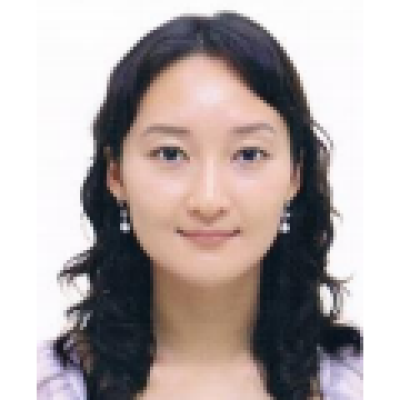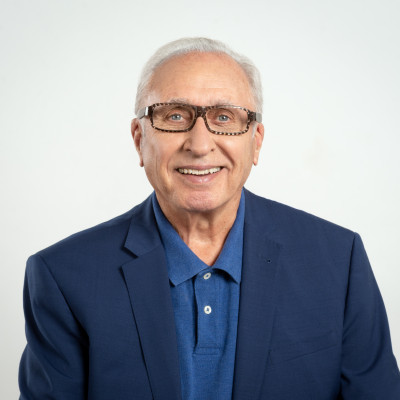Sessions / Language Policy / World Englishes / English as a Lingua Franca / Translanguaging
The Translanguaging Practices of Emergent Korean-English Bilingual Children in Korea #3619
There has been a tremendous growth of multicultural families in Korea since the last forty years. In part from this upward projection, this study investigated how Korean-English emergent bilingual children living in Korea conduct translanguaging practices for various purposes. Anglophone fathers’ perceptions of their bilingual children’s language proficiency, the translanguaging practices of Korean-English bilingual families in Korea, and the impact of translanguaging practices on bilingual children’s self-identity development are explored. There were three major findings. First, parents of emergent bilingual children generally value high proficiency in both languages. Second, translanguaging is often practiced for communicative purposes. Finally, translanguaging has an important effect on emergent bilinguals’ self-identity development. Based on the results, implications are drawn with regards to the needs of emergent Korean-English bilingual children and their families in Korea.
Exploring World Englishes to Enhance Learners' Oral Skills #3361
Invited Second Session
According to Ethnologue, there are approximately 378 million people who speak English as their first language and 743 million who speak English as an additional language. These data points tell us that our learners will likely have more interactions with people who speak English as an additional language than with “native speakers.” In this session, we’ll question the categories of “native speaker” and “nonnative speaker,” reflect on the role of English globally, and discuss features of World Englishes. Next, we’ll consider the decisions we make when establishing learning outcomes, selecting materials, and designing assessments that target English oral skills. How do we address learners’ needs, goals, and expectations while raising awareness about English as a global language? How do we prepare them for high-stakes tests while acknowledging the reality of language use in the world? During this session, we’ll evaluate perspectives about standards and find ways to bring World Englishes into the classroom through thought-provoking listening and speaking activities that promote 21st-century skills, perspective-taking, and a desire to enact positive change in the world..
Chinese English teachers’ perceptions of native-speakerism and signals of change #3853
Since its introduction, studies about native-speakerism have focused mostly on students’ perceptions of their native/non-native English teachers. The current study aims to explore Chinese English teachers’ perceptions of native-speakerism by asking two questions. First, what constitutes native-ness, especially in non-English-speaking countries. By what factors do Chinese English teachers tell native English teachers from non-native ones? Second, from the perceptions of Chinese English teachers in the first question, what pedagogical implications can we draw? The participants are six Chinese English teachers in a private junior high school in Jiangsu, China. Qualitative data was collected through questionnaires and follow-up interviews. The findings show that Chinese English teachers believe speaking ability is most important to determine an English teacher’s native-ness. With this speaking ability, fluency and certain accents are the key factors. The results will cast a hint of emerging changes in the perceptions of native-speakerism and pedagogical implications in non-English speaking countries.
English as an International Language: What It Is and What It Isn't #3357
Invited Second Session
The spread of English as an international language has challenged traditional understandings of what English is and what the goals of learning and teaching English are. Concepts such as “native English speaker,” “second language learner,” “ESL,” “EFL,” and “communicative competence” have had to be revised as a result of the emergence of English as a global lingua franca. The term “English as an international language” is one of several that have gained prominence as the TESOL profession seeks to adapt to the realities of the spread of English beyond its traditional territories. In this presentation, the nature of English as an international language will be reviewed and the implications it raises for the teaching of English.
ELF experience and its effects on L2 learners’ attitudes to translanguaging: A case study in Japan #3542
English medium instruction (EMI) for teaching language courses is a growing global phenomenon, but the use of the learners’ L1—or translanguaging—as a resource in language classes remains controversial. While teachers’ attitudes toward translanguaging have been explored in numerous studies, fewer attempts have been made to examine learners’ perspectives on their teachers’ translanguaging practice in an EMI setting. This study collected interview data from 91 Japanese college students and categorized the transcribed recordings using thematic analysis. The results indicate that (a) approximately two-thirds of the interviewees hold a negative view on teachers’ use of translanguaging and (b) such preferences correlate with past experience of international communication but not with L2 proficiency. Main reasons for supporting or rejecting teachers’ translanguaging are discussed in relation to why teachers’ decision to translanguage needs to be context-driven and how/what translanguaging techniques can be put into practice to help maximize L2 learners’ communicative potential.
English Language Education for Indigenous Students in Rural Malaysian Borneo: Teachers’ Perspectives #3561
As with most other former British colonies, the English language education policies for national schools in Malaysia are formed on the basis of English being a second language (ESL) due to the persisting importance of the language in different facets of Malaysian society even after gaining independence. However, little is known about the implications of such policies on the students in rural parts of Sabah, a state in Malaysian Borneo, where students are primarily of indigenous backgrounds, and English is closer to a foreign language than it is a second language. Therefore, this study intends to explore this issue through a multi-method approach, including narrative interviews with ten English language teachers in rural schools of Ranau District in Sabah. The presentation will discuss the implication of ESL policies towards English education for indigenous students in rural schools by looking at the teachers’ perspectives, mainly based on their own experiences.
What does it mean to build students' confidence in a College English course? #3580
Building confidence is a popular learning objective in English language courses but it's one of those objectives that has become a cliche in many classrooms. Confidence is a psychological construct that’s hard to measure in a language course which gives it an elusive character compared to other objectives and it's connection to the methodologies we use in class is also unclear: What are the class activities that build students' confidence as ELLs? How do we do it and how do we know? The presentation will engage the attendees in a discussion about what building confidence means in the context of a Korean College English course from both conceptual and methodological perspectives. Building on the concept of English as Lingua Franca, the presentation focuses on the idea of adding legitimacy to ELLs as English speakers in their own right. The audience will also engage in an activity called Focused Listening designed to help students engage with just the essential information of listening activities that are informationally dense and sparse. Focused listening takes a strength-based approach to listening and utilizes peer social interaction as a tool for engagement and participation. The presentation will close with comments from students on what it means to build confidence as an English language learner in a college English course.




